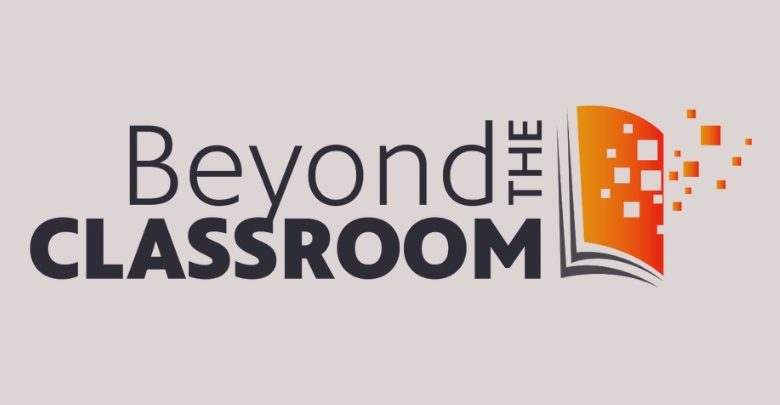As students set out on their educational journey, the importance of gaining knowledge extends beyond the confines of the classroom. Conferences provide students with opportunities for growth, networking, and exploration. You may now like to know more about why conferences are important for students.
Well, these gatherings serve as catalysts for learning, exposing individuals to diverse perspectives, cutting-edge research, and industry trends. They go beyond textbooks, immersing attendees in interactive sessions, workshops, and panel discussions led by field experts.
Conferences promote critical thinking, inspire creativity, and spark innovation, ultimately shaping well-rounded individuals with the skills and insights needed to succeed in their academic and professional endeavors.
We are going to talk about some common reasons why conferences are so valuable for students.
How are Students Related to Conferences?
Students are closely linked to conferences in several ways. Conferences provide invaluable opportunities for students to present their research findings, present papers, and engage with peers and experts in their field, fostering academic growth and networking.

Additionally, attending conferences, especially international academic events exposes students to the latest research, innovative methodologies, and diverse perspectives, improving their educational experience. Moreover, conferences often feature workshops, panel discussions, and keynote speeches, offering students insights into current trends and challenges in their discipline.
Furthermore, conferences may facilitate collaboration and potential mentorship opportunities, aiding students in establishing themselves within the academic community. Students and conferences share a symbiotic relationship, mutually benefiting from knowledge exchange and professional development opportunities.
What Are The Opportunities Available To Students At Conferences?
Attending conferences provide platforms for networking, knowledge exchange, and skill development. Let’s explore some specific opportunities that conferences offer to students.
Residency Application Conferences
Conferences dedicated to residency applications provide valuable benefits for students pursuing careers in healthcare. These events unite program directors, residents, and aspiring applicants, creating an environment conducive to networking and learning. Students engage in discussions, attend workshops, and gain insights into the latest trends in their field.
Conference Committee Involvement
Participating in conference committees offers students a unique chance to contribute to the organization and execution of conferences. Students take on various roles: event planning, session coordination, and marketing. In addition to developing organizational and leadership skills, committee involvement allows students to interact closely with professionals and experts in their field.
Conferences For Companies
Conferences that attract companies give students valuable opportunities to engage with industry representatives. These events often feature exhibitions and networking sessions where students interact with brand representatives, learn about career prospects, and explore internship or job opportunities. Connecting with professionals from relevant industries enables students to gain firsthand insights into industry trends, demands, and potential research collaborations.
Attend Professional Conferences
Attending professional conferences in their respective fields offers students a range of benefits. These events provide a platform for sharing research findings, presenting papers, and receiving feedback from experts in the field. By attending sessions and workshops, students expand their knowledge, gain exposure to cutting-edge research, and develop a deeper understanding of their academic discipline.
Why Conferences Are Important For Students?
Conferences hold immense importance for students, offering a multitude of advantages that enhance their educational journey and professional development. Let’s delve into the reasons why attending conferences is essential for students.

Networking Opportunities
Conferences bring together individuals from various backgrounds, including academics, professionals, and fellow students. This provides students with invaluable networking opportunities, allowing them to connect with like-minded individuals, potential mentors, and even future employers. Engaging in meaningful conversations and establishing professional relationships can open doors to internships, research collaborations, and career opportunities.
Knowledge Exchange
Conferences serve as a hub for the exchange of knowledge and ideas. Students have the chance to attend presentations, workshops, and panel discussions by experts in their field. This exposure to cutting-edge research and innovative ideas can broaden their understanding and inspire them to explore new avenues of study. Additionally, students can present their research findings, gaining valuable feedback and insights from peers and experts in the field.
Career Advancement
Attending conferences can significantly boost a student’s career prospects. By participating in conferences, students demonstrate their dedication to their field of study and their commitment to continuous learning. This can be highly attractive to potential employers, showcasing the student’s passion, knowledge, and engagement with the latest developments in their chosen field.
Personal Growth
Conferences provide a platform for personal growth and development. Students can develop their presentation and public speaking skills by presenting their research or participating in panel discussions. They also have the opportunity to refine their critical thinking and communication skills by engaging with diverse perspectives and defending their ideas.
Exposure to Different Perspectives
Conferences often attract participants from different regions, cultures, and academic disciplines. This diversity of perspectives exposes students to new ideas, methodologies, and approaches. By interacting with individuals who have different backgrounds and experiences, students can broaden their horizons, challenge their assumptions, and promote a more inclusive and comprehensive understanding of their subject area.
Inspiration and Motivation
Attending conferences can be a source of inspiration and motivation for students. Listening to renowned speakers and witnessing groundbreaking research can ignite their passion for their field of study. Conferences provide an environment that encourages intellectual curiosity, sparking new ideas and encouraging students to push the boundaries of their knowledge.
Building a Professional Reputation
By actively participating in conferences, students can build their professional reputation within their academic or industry community. Presenting research, contributing to discussions, and networking with experts help establish them as emerging scholars or professionals in their field. This can lead to future collaborations, invitations to speak at other conferences, and recognition for their contributions.
Academic And Research Advantages Students Gain From Attending Conferences
Students participate in Academic and research events and open doors to collaboration, recognition, and professional growth opportunities. Here are some of the key advantages conferences offer to students.
Conferences For Students
Specific conferences designed for student researchers provide a platform for students to showcase their work and engage with peers in their respective fields. These conferences are tailored to cater to the needs and interests of student researchers, offering opportunities to present their research findings, receive feedback, and gain recognition for their work. Attending student-focused conferences allows students to connect with like-minded individuals, explore collaborations, and build networks within their academic communities.
Meeting And Conference Contributions
Conferences allow students to contribute and present their research to a wider audience. Students can submit abstracts or papers for consideration, and if accepted, they can present their work through oral presentations, poster sessions, or even interactive discussions. Presenting at conferences allows students to receive feedback from experts in their field, gain exposure to their research, and refine their presentation skills.
Including Conference Paper In CV
Including conference papers in students’ CVs holds significant importance for academic advancement. Conference papers demonstrate students’ active research involvement and ability to contribute to the scholarly community. These papers indicate that students have undergone rigorous peer review and have met the academic standards required for presentation or publication. Including conference papers in CVs showcases students’ research accomplishments, adds credibility to their profiles, and enhances their academic reputation.
Contribution Of Conferences Toward Development Of Skills And Knowledge Among Students
In pursuing academic and professional excellence, developing skills and knowledge is paramount for students. Below we will discuss how conferences help students in the development of skills and knowledge:
Learning And Skill Development
Conferences provide a unique learning environment beyond the confines of the classroom or laboratory. They offer students the opportunity to enhance their communication, presentation, and networking skills.
Through oral presentations, poster sessions, and interactive discussions, students learn how to articulate their research findings effectively, engage with diverse audiences, and receive constructive feedback from experts in their field.
Conferences also foster networking opportunities, allowing students to connect with professionals, researchers, and peers with similar interests. These interactions expand their professional networks and provide avenues for potential collaborations and mentorship, further enriching their academic journey.
Field Of Study Engagement
Conferences provide students with a platform to immerse themselves in their chosen field. Students gain valuable insights into the latest advancements, trends, and research methodologies by attending conferences specific to their disciplines.
They have the opportunity to engage with leading researchers, scholars, and practitioners who are at the forefront of their fields. Students can attend presentations and panel discussions, participate in workshops and tutorials, and access resources that deepen their understanding of their respective disciplines.
This immersive conference experience allows students to stay updated with current research, broaden their perspectives, and contribute to the academic discourse in their field.
Benefits Beyond The Classroom When It Comes To Attending Conferences
The benefits of education extend far beyond the confines of the classroom, and conferences play a pivotal role in providing students with opportunities that transcend traditional academic settings.
Professional Development
Conferences play a crucial role in the professional development of students. Beyond the classroom, conferences provide a platform for students to showcase their research, gain recognition, and receive valuable feedback from experts in their field.
They offer opportunities for students to refine their presentation and communication skills and develop their ability to articulate complex ideas to a diverse audience.
Participating in conferences allows students to stay up-to-date with the latest advancements and emerging trends in their field, fostering intellectual growth and enhancing their overall academic profile.
Networking Opportunities
One of the significant benefits of attending conferences is the opportunity to expand students’ professional networks. Conferences bring together researchers, scholars, industry professionals, and peers worldwide who share common research interests or expertise.
Engaging in discussions, attending sessions, and connecting during networking breaks can lead to meaningful connections and collaborations. Building a diverse and extensive network of contacts opens doors to potential research collaborations, mentorship opportunities, and even future career prospects. These connections can be invaluable in shaping students’ academic and professional journey.
Conference Dinners And Programs
Conference dinners and programs provide a unique social and networking aspect to the conference experience. These events create a relaxed and informal setting where students interact with fellow attendees, speakers, and established professionals in a more casual environment.
It offers an opportunity to engage in conversations outside the confines of formal sessions, fostering connections on a more personal level. Conference dinners often include keynote speeches, panel discussions, or award ceremonies, further enhancing the overall experience and providing additional learning opportunities for students.
Final Thoughts
Conferences play a vital role in the academic and professional growth of students. They provide many opportunities for students. After reading this article, we hope you understand why conferences are important for students. Students can present their research through conferences, receive expert feedback, and enhance their presentation and communication abilities.
Moreover, conferences allow students to immerse themselves in their chosen field of study, staying updated with the latest advancements and trends. Beyond the classroom, conferences contribute to students’ professional development, offering networking opportunities that lead to collaborations and mentorship. The social and networking aspects of conference dinners and programs further enrich the experience.
Despite cost concerns, the benefits of attending conferences outweigh the expenses, making them truly worthwhile for students. By actively participating in conferences, students can unlock new possibilities, broaden their horizons, and set a strong foundation for their future academic and professional endeavors.






